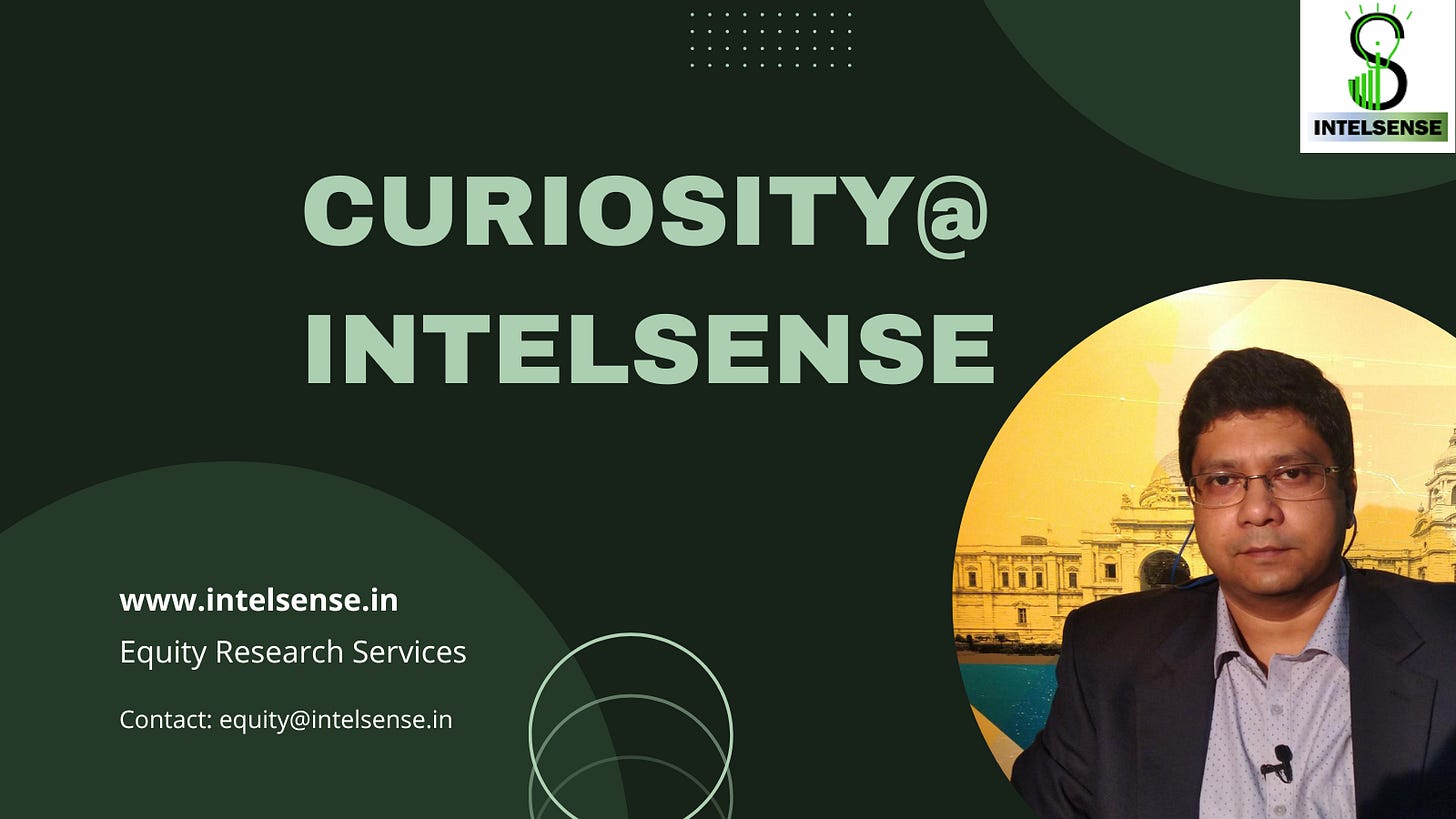Curiosity@Intelsense
In investing, I have grown to have a dual personality :-) In my first avatar, I keep looking for long term, quality, compounding stories that can give above average returns over very long periods. These tend to end up as the proverbial multibaggers after a few years.
In the second avatar, I look for returns from short cycles using quantitative models, technical analysis or special situations.
While hunting for the long-term growth stocks, I have come to realise that we need to, sometimes, give what I call breathing space to the businesses. Businesses cannot keep delivering high growth every quarter. It is not possible (well, maybe except for HDFC Bank, for the majority part of the last twenty-five years).
Chris Mayer, in his article, has put this rather well.
We all write our notes after the quarterly earnings come out and update our models and so on. But when you step back, you realize how little those things matter. In NVDA, as with any big winner, you see it in stark relief. All those little quarterly updates don’t matter very much at all. Businesses are organic. The numbers fluctuate. They are not machines. We have to allow for some volatility in results.
The idea is not to interrupt compounding unnecessarily when you have a good business run by a good management team.
The World Cup 2022 has come to an end. Messi, having won the last trophy that had kept him away from eternal greatness for so long, can walk away a happy man. In contrast, it also saw the fading away of another great player, Ronaldo, into a sort of ignominy. This article in The Atlantic captures the essential difference between the two great rivals well.
Ronaldo, 37, flailed because he couldn’t adapt to his physical decline. He insisted on playing as if he were 10 years younger. By acting as if he was essential, he became superfluous. And in his final game, a flaccid defeat to Morocco, he came off the bench, contributed little, then left the field in tears—without shaking hands with his opponents or consoling his bereft teammates. It was a pathetic way to exit, befitting a vain career.
That’s the counterpoint to Messi’s victory. Without the legs to carry him, Messi economized his movements. Rather than pretending that he was a young man, he played like an older one. He ambled through games, saving himself for the moments that he could assert himself. He showed a remarkable awareness about how he might be able to parcel out his dwindling corporeal self, how he needed to make choices about when to give himself fully.
Thought of the Week
When we suffer setbacks, disturbances or grief, let us never place the blame on others, but on our own attitudes.
~ The Art of Living by Epictetus
Investing is a microcosm of life itself. So, as in life and investing, the idea is to never blame others for the losses or drawdowns in the portfolio. Ultimately, it was our decision to buy or sell. Unless we take ownership of our own mistakes, we cannot take action to rectify the errors.




